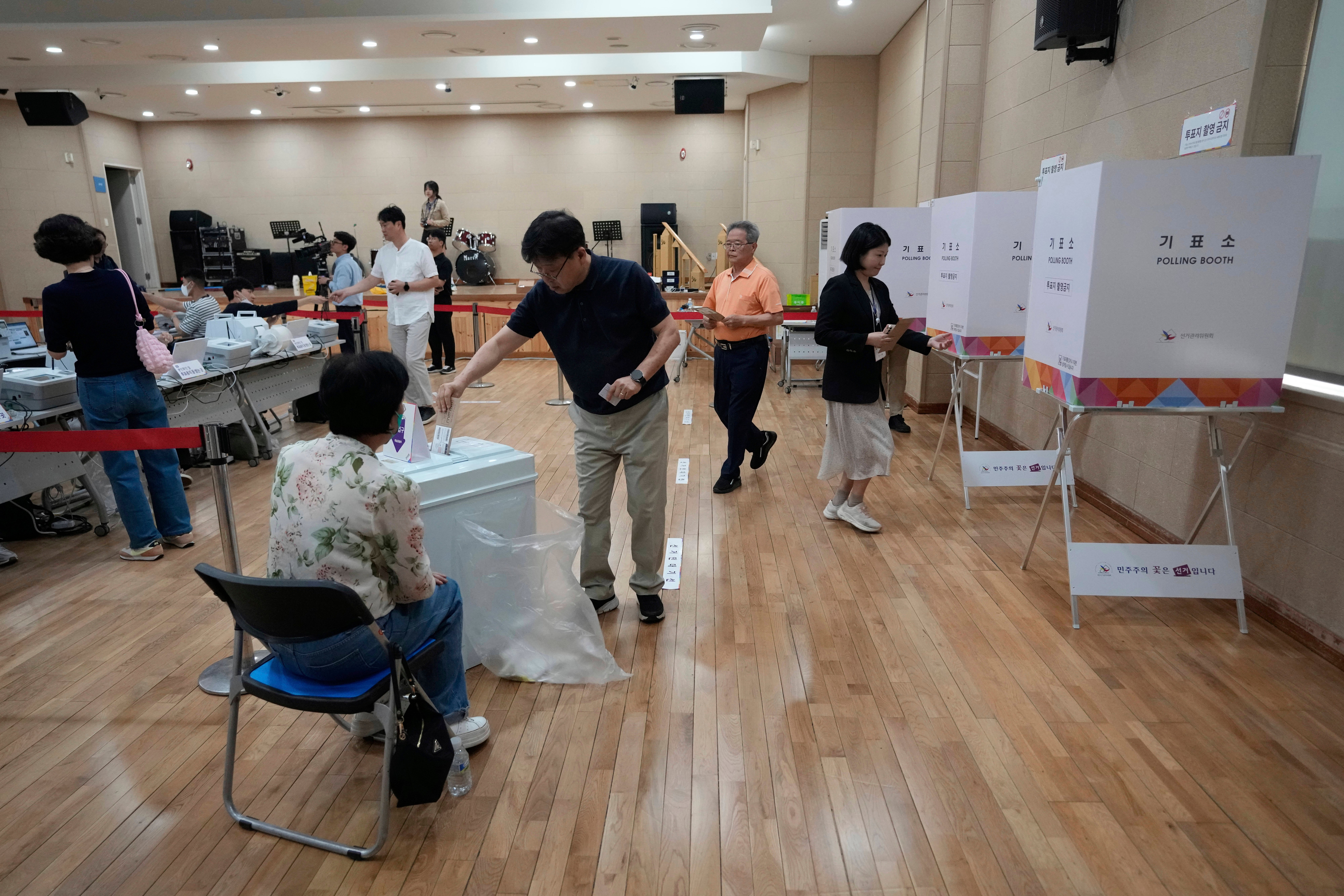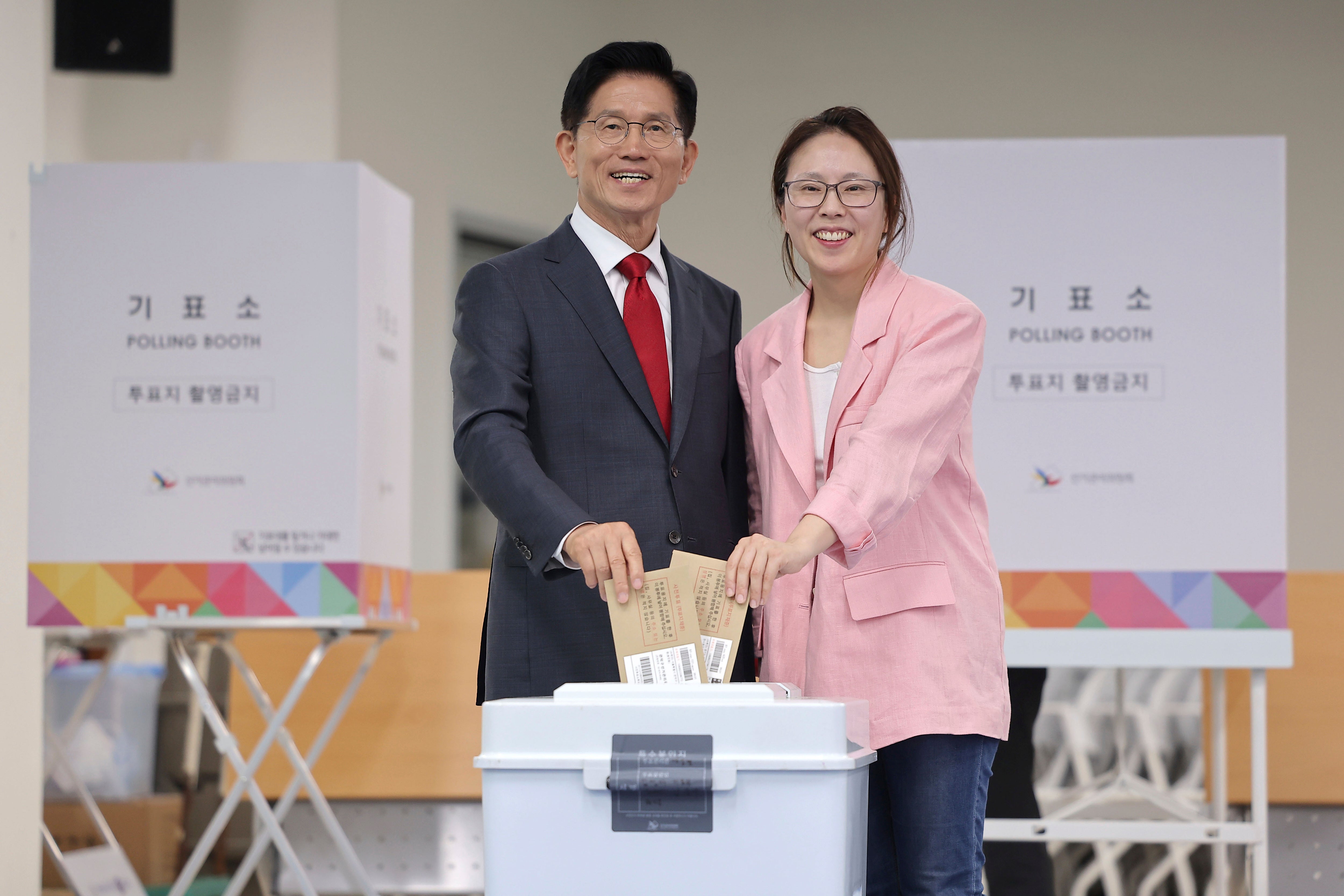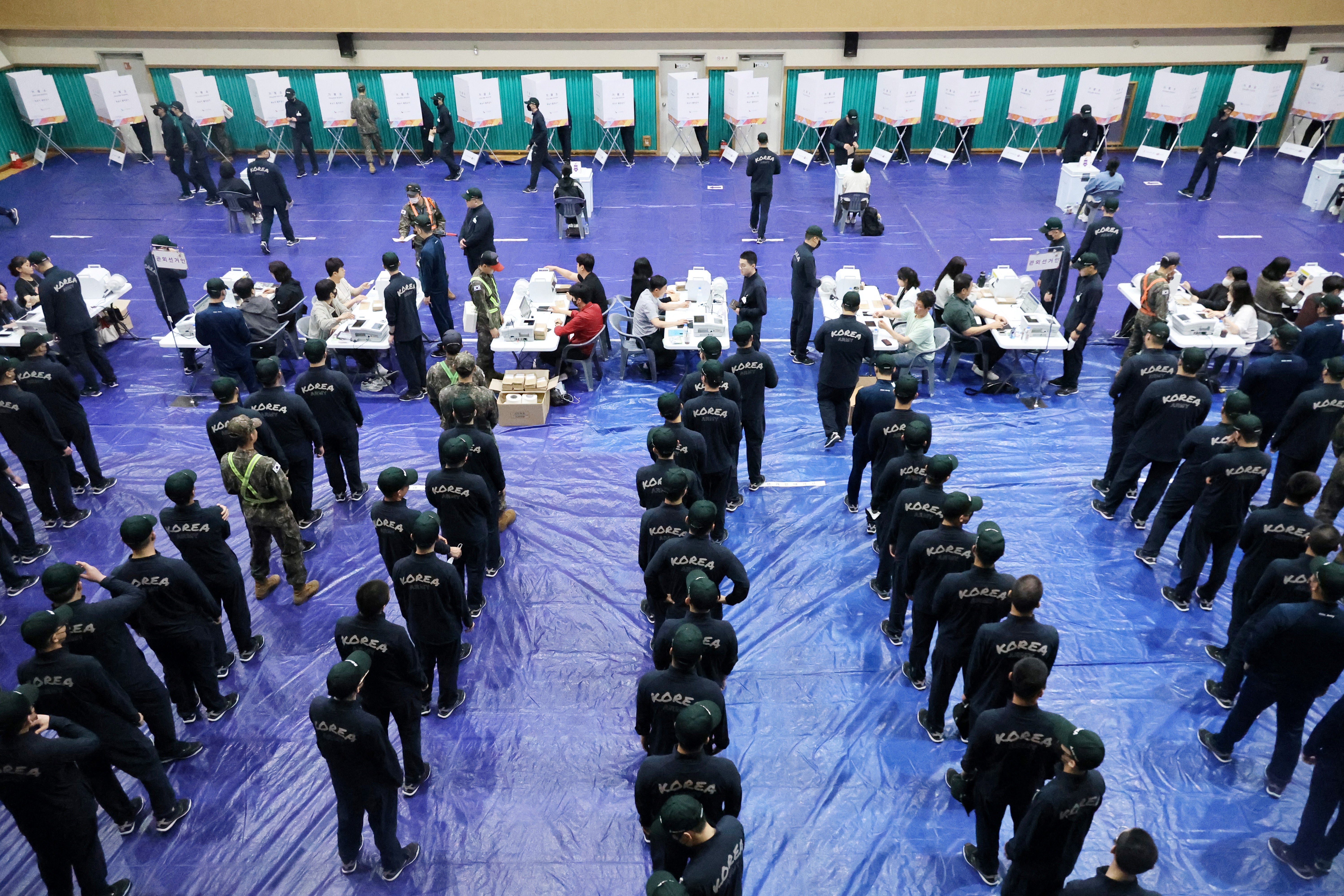South Koreans turn out in huge numbers for early voting after months-long political crisis
More than 6m of 44m eligible voters turned out on first day of early voting to choose Yoon Suk Yeol’s successor
South Koreans turned out in large numbers as early voting kicked off on Thursday in the snap presidential election following months of political instability and chaos.
The high-stakes election was precipitated by a constitutional crisis caused by former president Yoon Suk Yeol’s disastrous attempt last December to impose martial law, throwing the country into chaos and sparking widespread protests.
The liberal opposition Democratic Party's candidate Lee Jae Myung, the favourite to win, cast his ballot in Seoul, urging people to vote.
“In order to overcome the current crisis and start again as a Korea of recovery and growth, please vote," he said after casting his ballot at a university district in the city.
His closest rival, Kim Moon Soo of Mr Yoon’s People Power Party, cast his vote in Incheon along with his daughter. "If you do not vote, there is no hope for this country," Mr Kim, 73, the oldest contender in the presidential race, said.
He warned that victory for his rival would "take away freedom” after previously calling Mr Lee a harbinger of “monster politics and dictatorship”.
The latest and last poll on the possible winner of the presidential election on Wednesday showed Mr Lee leading Mr Kim by 49.2 per cent to 36.8 per cent. New Reform Party's Lee Jun Seok stood third with 10.3 per cent support.

Early voting began at 3,568 polling stations in the country, five days before the main election day on 3 June. According to the National Election Commission, 6.2 million registered voters, 14 per cent of all eligible voters, had cast their vote by 3am local time.
It was the highest turnout for the equivalent period in a presidential election, besting the 12 per cent recorded three years ago.
South Korea has 44.39 million eligible voters, with women accounting for 50.5 per cent of them, according to data from the interior ministry.
On 3 June, a public holiday, voting will run from 6am until 8pm, and results will likely start emerging that evening or early the next day.
The National Election Commission is expected to verify the results on 4 June, paving the way for the inauguration of the new president.

This election is to fill the political vacuum created by Mr Yoon’s removal in April for violating the constitution by imposing martial law decree on 3 December.
Mr Yoon’s martial law decree, the first in South Korea for about 40 years, was supposedly intended, in part at least, to break political deadlock in the opposition-controlled parliament. It was swiftly overturned by lawmakers, who went on to impeach him.
The incoming president will need to ease political divisions and tackle economic problems and work with the US on issues like tariffs and the cost of hosting American troops.
On Thursday, the Bank of Korea cut interest rates and slashed its 2025 growth forecast for the fourth-largest economy in Asia to 0.8 per cent from 1.5 per cent.

The snap election is one of the most tightly fought in South Korea. Political uncertainty and lack of clarity about the policies of the leading candidates have divided voters, Indo-Pacific and Korea affairs analyst Dr Jagannath Panda argued.
“Domestically, the new president’s challenge will be how to keep the economy in order while looking for more employment opportunities for the young generations. Upholding economic stability will be a core focus of the new President,” Dr Panda, head of the Stockholm Centre for South Asian and Indo-Pacific Affairs at the Institute for Security and Development Policy in Sweden, told The Independent.
The new leader will be called upon to manage relations with chief ally US, a relationship made unpredictable by Donald Trump’s presidency, as well as with chief adversary North Korea.
“The new South Korean president will have a challenge in maintaining a balance between the United States and North Korea,” Dr Panda said.
Join our commenting forum
Join thought-provoking conversations, follow other Independent readers and see their replies
Comments
Bookmark popover
Removed from bookmarks